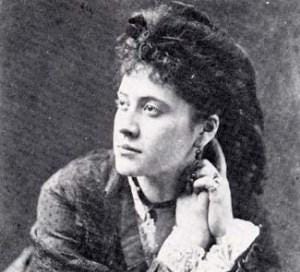La Paz, Sonora, Baja California
Maria Amparo Ruiz (age 15)
The pretty little town of La Paz, on the Baja California peninsula, was all Maria Amparo had ever known. Its streets lined with willow trees, its whitewashed adobes, its carefully tended vegetable gardens and orchards, its desert heat, its tranquil beaches—all were as familiar to her as the shape of her own body.
And now it had been invaded. Yanqui military forces overran the streets. Guerrillas took refuge outside the town, launching desperate attacks—but were clearly outnumbered and outgunned by the conquering Americans.
Maria Amparo’s mother Isabel, their family and friends, most all of the landed classes of La Paz, took the invasion calmly. Alta California had fallen under control of los Estados Unidos at the very start of la Intervención Estadounidense en México, the Mexican-American War. No one in the Ruiz’s circle had really expected the young and unstable Republic of Mexico to resist American expansion into California, Alta or Baja.
Maria Amparo was not calm. It was not in her nature to be calm. But neither was she outraged.
She had long ago scraped together all the education she could get in La Paz, mostly through her own reading, and by practicing French and English with whatever passing traveler could be bothered to speak it with her. She had always been certain that she was meant for a far bigger life than La Paz had to offer. The question, always, was—Cómo hacerlo?
How?
Her family and the entirety of her mother’s social circle fully expected her to marry the wealthy ranchero who had begun insistently courting her. All Maria Amaparo could see ahead was a long, dull life of childbearing, surrounded by unremarkable people who thought her fit for no more than motherhood.
And then came the invasion.
Led by the dashing Lieutenant Colonel Henry Burton.
Educated, traveled, handsome, and a widower, Lt. Colonel Burton took instant notice of Maria Amparo. She made certain of that. She spoke boldly to him in French, assuming he would be fluent—and knowing her chaperones were not.
Fluent he was—and he understood the game at once. Their mutual grasp of the language enabled daring conversations in plain view of would-be restricting forces.
—Quelle délicieuse journée! Je veux le manger!
—J'aimerais bien te l'offrir, mademoiselle.
A relationship bloomed.
When the guerrillas turned against the citizens of La Paz who’d willingly surrendered to the invaders, Captain Burton offered those citizens safe transport to Monterey, in Alta California.
On one of his war ships. Under his personal safeguard.
And Maria Amparo easily convinced her mother of the wisdom of seizing the opportunity.
If the world was divided into conquerors and the conquered, she had no doubt which she intended to be.





So much American history to uncover. Not taught in classrooms, that's for sure.